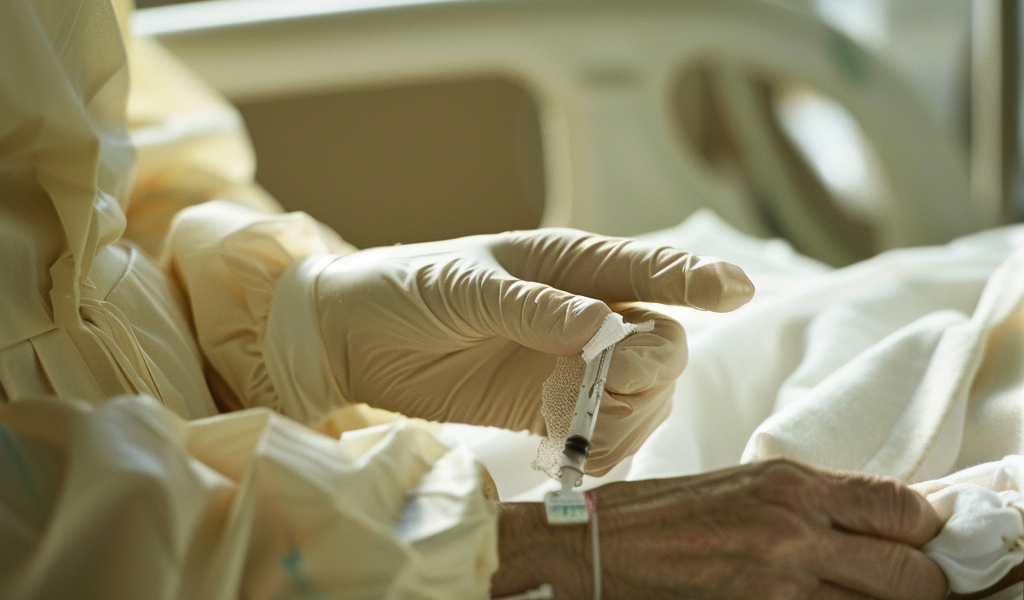A tragic incident has raised serious concerns regarding the safety protocols surrounding vitamin injections in the UK. A 77-year-old woman, Patricia Lines, died shortly after receiving a routine Vitamin B12 injection, leading to a coroner’s inquiry that has sparked a warning about the current medical guidelines.
The inquest revealed that Lines received the injection in her right shoulder on October 17, 2024. The following day, she began to feel unwell and was subsequently admitted to the hospital. Medical staff diagnosed her with a Strep A infection, which rapidly worsened despite their efforts to treat her. Unfortunately, she passed away on October 23, just six days after the injection.
During the inquest, it was determined that the cause of her death was septicemic shock, a severe condition resulting from bacteria entering the bloodstream. The post-mortem examination indicated that the likely source of the invasive infection was the injection itself, as it was believed that bacteria present on her skin were pushed deeper into her tissue by the needle.
The nurse who administered the injection testified that she did not clean the skin prior to the procedure, adhering to current national guidelines which state that cleaning is not necessary unless the skin appears visibly dirty. However, this incident has prompted assistant coroner for County Durham and Darlington, Rebecca Sutton, to issue a stern warning regarding the interpretation of these guidelines.
In her report, Sutton emphasized the need for medical professionals to exercise common sense and take additional precautions when administering injections. She highlighted that using alcohol wipes is a simple, cost-effective method to reduce the risk of infection, stating that they are both affordable and pose no significant risk to patients.
The coroner’s comments have reignited discussions within the healthcare community regarding the importance of adhering to hygiene protocols, particularly in light of the potential consequences of neglecting such practices. Sutton has reached out to the UK Health Security Agency, the Department of Health and Social Care, and NHS England to advocate for a review of the guidelines to ensure that patient safety remains a priority.
This incident serves as a stark reminder of the critical nature of infection control in medical settings. Injections, while often routine, carry inherent risks that can lead to severe complications if proper protocols are not followed. The healthcare sector is now urged to reevaluate existing practices to prevent similar tragedies in the future.
As discussions continue, healthcare professionals are encouraged to prioritize patient safety and consider the broader implications of their actions. The tragic death of Patricia Lines has underscored the necessity for vigilance and adherence to strict hygiene practices, particularly in routine medical procedures.
In light of this incident, patients are advised to be proactive in discussions with their healthcare providers regarding the protocols followed during injections and to ensure that proper hygiene measures are in place. Understanding the steps taken by medical staff can empower patients and help mitigate the risks associated with injections.
The healthcare community’s response to this incident will likely shape future guidelines and training for medical professionals. As the coroner’s report circulates, it is hoped that necessary changes will be implemented to enhance patient safety and prevent further tragedies.





